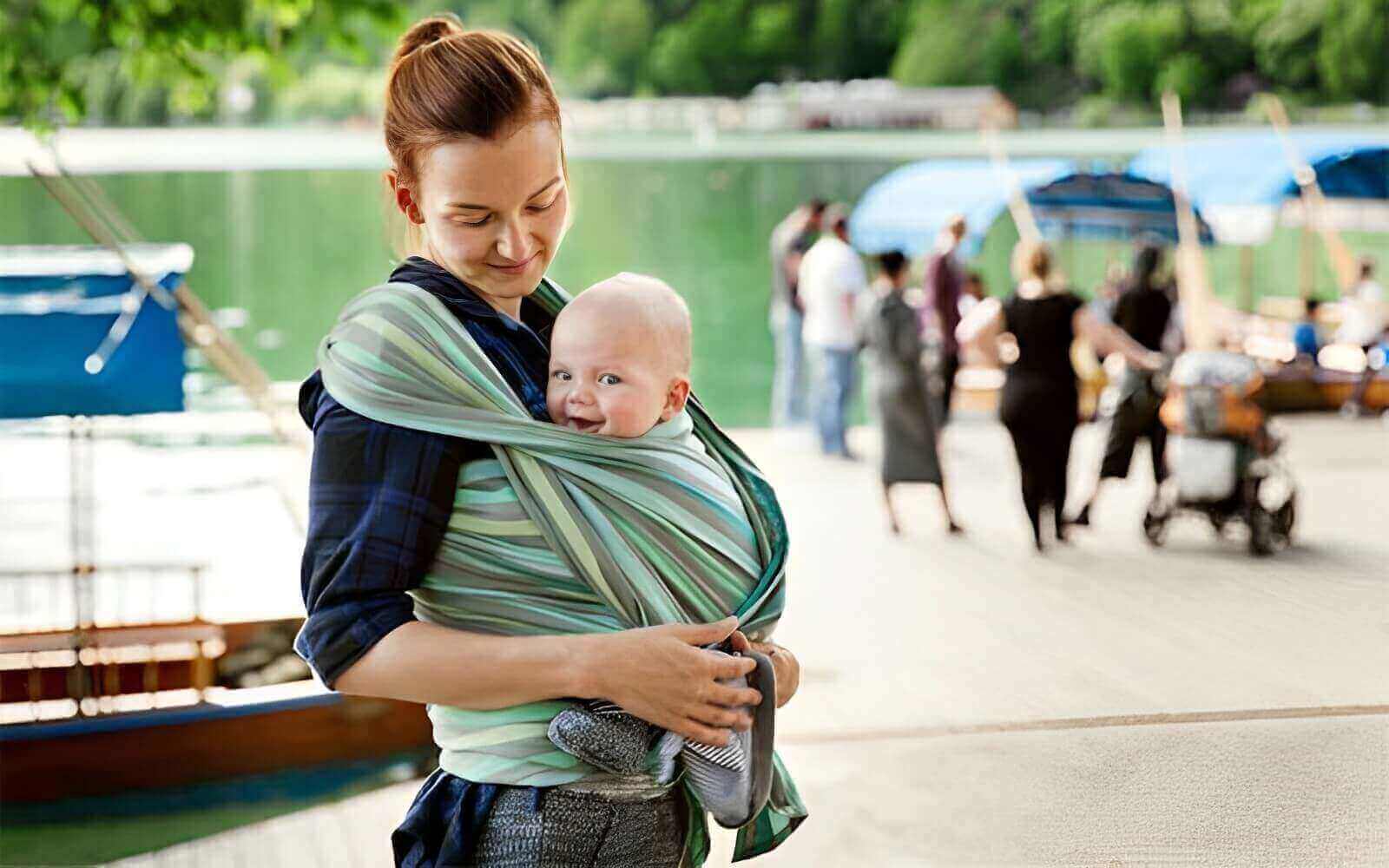Last Updated on July 12, 2023 by Muhammad Sohaib
Traveling with your baby can be an incredibly rewarding and memorable experience. Exploring new places, creating precious memories, and exposing your baby to different cultures and environments can be incredibly rewarding.
However, choosing the right age to embark on your travel adventures is important for both your baby’s comfort and your peace of mind.
Which is the best age to travel with a baby? This is a common question that often crosses parents’ minds.
No need to worry!
In this guide, we’ll help you determine the best age to travel with your baby, ensuring a smooth and enjoyable journey for the whole family.
A Comprehensive Guide For Best Age To Travel With Baby
Newborn Stage (0–3 months)

During the first few months of your baby’s life, they require extra care and attention, making travel a bit more challenging.
Factors such as establishing feeding routines, frequent diaper changes, and unpredictable sleep patterns can make long journeys stressful.
It’s generally recommended to limit extensive travel during this stage, focusing on creating a nurturing and settled environment for your baby.
Related:
Advantages
- Newborns sleep a lot, which can make long journeys more manageable.
- They are less likely to be mobile
Disadvantages
- Newborns have developing immune systems, making them more susceptible to germs and infections.
Infancy Stage

Around three to six months of age, your baby will start becoming more alert and curious about the world around them.
This can be the best time to travel with a baby for your first vacation together. Consider choosing a destination that offers a mix of relaxation and stimulation, such as a beach resort or a nature retreat.
At this age, babies become fascinated by new sounds, sights, and textures, so be sure to pack some age-appropriate toys and books to keep them engaged during travel.
Advantages
- They are more alert and responsive, making interactions during travel more enjoyable.
- Breastfeeding or bottle-feeding is generally easier, providing convenience during travel.
Disadvantages
- Mobility starts to increase during this age, requiring extra vigilance to ensure their safety.
- Sleep patterns can still be unpredictable, which may disrupt daily plans.
- Jet lag or time zone changes may affect their routine and sleep schedule.
6-9 Months Baby Age

While planning a road trip with a child, it’s crucial to consider the destination and the duration of your trip. Some factors to keep in mind include the climate, availability of baby-friendly facilities, healthcare resources, and the overall safety of the destination.
Shorter trips to nearby locations are often a good starting point to gauge your baby’s comfort level and assess their response to travel.
Traveling with a baby aged 6–9 months can be both thrilling and challenging. At this stage, babies are becoming more active and curious about their surroundings.
While it’s exciting to watch them explore, it can also be harder to keep them entertained as they tend to wiggle a lot.
Advantages
- Building precious family memories during this time.
- Introducing your baby to new tastes and textures through local cuisine or specially prepared baby food.
- Bonding with your baby as you spend quality time together in new surroundings
Disadvantages
- Increased need for planning and organization due to the additional baby gear required.
- Potential disruptions to your baby’s routine, which might cause some temporary challenges.
- Finding suitable accommodations that cater to the needs of babies is difficult.
- Possible discomfort for both you and your baby during long journeys or flights.
9-12 months Baby Age

This is the best time to travel with a baby. Traveling with a baby aged 9-12 months can be an exciting and interactive experience. At this stage, babies are walking and becoming more engaged with their surroundings.
Opt for baby-friendly destinations with plenty of open spaces and child-friendly attractions.
Remember to pack essentials like baby-proofing supplies, a lightweight stroller, and a comfortable baby carrier to ensure both safety and convenience during your adventures.
Advantages
- The ability for your baby to interact with different environments and cultures.
- Creating lasting family memories during this precious time of your baby’s life.
- The opportunity for your baby to socialize and interact with new people, enhancing their social skills.
Disadvantages
- As babies become more mobile, they require constant supervision to ensure their safety.
- Challenges in maintaining a consistent routine
- The necessity of packing enough snacks, food, and drinks to meet the baby’s needs throughout the journey.
- Potential fatigue for both parents and the baby due to increased activity and exploration.
Toddler Adventures Begin At Age Of 12-18 Months

Between their first and second birthdays, babies transition into the toddler phase, filled with endless energy and a newfound sense of independence.
Traveling during this period can be incredibly rewarding, as toddlers are curious and excited to engage with their surroundings.
Look for destinations that offer age-appropriate activities such as playgrounds, interactive museums, or animal sanctuaries. Keep in mind that toddlers thrive on routine, so maintaining a familiar schedule during travel can help them feel secure and happy.
Tips for Traveling with a Baby at Any Age
- Plan your trip well in advance, considering factors such as climate, destination, and local amenities suitable for babies.
- Pack essential items like diapers, wipes, formula or breast milk, and a change of clothes in your carry-on bag.
- Bring familiar objects from home, such as their favorite blanket or toy, to provide comfort and familiarity during the journey.
- Schedule travel around your baby’s sleep routine to minimize disruptions and help them feel well-rested.
- Take advantage of early boarding options and choose seats with extra legroom if available to ensure a more comfortable journey.






